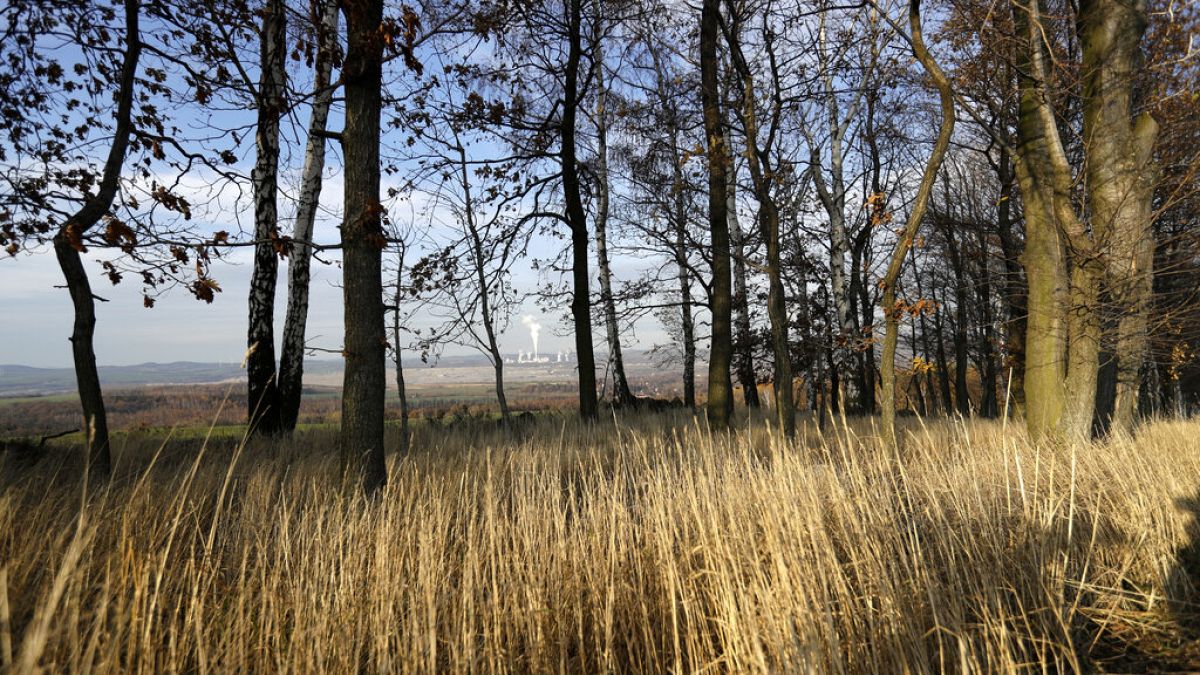The environmental situation in the Czech Republic is the fifth worst in Europe despite the amount of GDP spent on trying to rectify it, a newly-published report has said.
The Czech Republic is known as a country of nature lovers. But a recently-released report suggests the state of the environment there is the fifth worst in the European Union, even though the country spends the third-highest proportion of GDP on conservation.
Tereza Hrtúsová, an analyst at Česká spořitelna, a bank that co-produced the country's Index of Prosperity report released this month, said the Czech Republic performed poorly on most indicators.
“We produce an above-average amount of municipal waste per capita, and the recycling rate is very low,” she said. The Czech Republic has the third-highest greenhouse gas emissions per capita in the EU.
Air pollution is improving, Hrtúsová added, but every year an average of 31 out of 100,000 people die as a result of it, one of the highest ratios in Europe. “The Czech Republic's costs of premature deaths caused by air quality reach almost 7% of GDP. Only Poland, Hungary, and Latvia are worse off,” Hrtúsová said.
Time is of the essence
Some of the reasons are temporary. Recent years have seen an infestation of bark beetle, a weevil that spreads diseases in trees. This has resulted in mass logging, meaning forests in the Czech Republic are not absorbing as much greenhouse gas emissions as elsewhere in Europe.
It also means the Czech Republic has one of the largest shares of drought-afflicted land within the EU, though this is also the result of longer-term problems with soil management, experts argue. The Czech landscape could hold around nine billion cubic meters of water; it’s currently holding five billion, Hrtúsová said.
Longer term, structural problems are also at play. The share of industry in the Czech economy is one of the highest in the EU, which means higher energy intensity. Coal accounts for around 40 per cent of electricity production, and nearly half of household heating, which is partly why the country records some of the EU’s worst emissions rates from heating homes.
Daniel Vondrouš, director of the Green Circle, a local NGO, is not expecting to see drastic change any time soon: “There is huge investment trying to change this, and it will take at least another decade to stop using lignite and coal for producing energy."
New politics
There’s some cause for optimism, however. The new five-party coalition government that entered office in December campaigned on an environmental agenda. For Petr Fiala, the prime minister, the main task is balancing the books. The country racked up debts under previous governments and Fiala’s motto is austerity.
But in his major policy outline in January, he said environmental action is key, so long as it doesn’t negatively impact the economy too much. “The government wants to focus on nature and landscape conservation," a government statement read, "and on challenges brought about by climate change, while seeking solutions that do not jeopardize the country’s prosperity."
Like its predecessor, the new Czech government is pushing the European Union to relax the rules on nuclear power. Several new reactors are planned for the coming years. Like their counterparts in almost a dozen other countries, Czech officials argue that nuclear and gas projects should be considered eligible for sustainable financing, not a reason for Brussels to curb subsidies.
In January, the government said it wanted coal to be phased out of the energy mix by 2033, five years sooner than the 2038 target originally recommended by the government’s Coal Commission.
That was seen by many as the government listening to the advice of the green lobby, which wants coal to be phased out as soon as possible. The government is also working with the vital car-making sector to alter industry-wide policies.
Aside from big-picture issues, in recent weeks the environment minister, Anna Hubáčková, has spoken of creating new national parks, launched a new program to tackle food waste, and offered new subsidies to people who renovate their homes in energy-saving ways. She’s also working with the minister of agriculture, Zdeněk Nekula, to make it easier for farmers to turn to solar-power generation.
Delays, delays, delays
Vondrouš, of the Green Circle, says the new government is making some progress in decarbonization and addressing the past administration’s badly-shaped agricultural management.
But it's not all good news. “Unfortunately, the actual steps are slow and inefficient,” says Karel Polanecky, an energy expert at environmental group the Rainbow Movement. The war in Ukraine, he says, has been a setback for certain environmental goals, and spiraling inflation and a cost-of-living crisis mean the Czech government is now more averse to policies that could dent economic growth.
There are also factional issues within the five-party coalition. Fiala’s Civic Democrats (ODS), the largest of the five coalition partners, has a spotty history of climate action. Its erstwhile founder, Vaclav Klaus, is a known climate change denier.
But many of the ministerial roles responsible for the environment aren’t held by ODS politicians. Hubáčková, the environment minister, is from the Christian Democrats (KDU-ČSL), a coalition partner.
Erik Geuss, director of the Czech Environmental Inspectorate, surprisingly announced this week that he will resign at the end of the year. He insinuated he is being pushed out by ministers angry over his handling of the Bečva River scandal in 2020, when a forty-kilometre stretch of the river was contaminated by cyanide: the worst environmental disaster in more than a decade.
“In the long term, the increase in the share of the zero-emission sources such as nuclear and renewables will be crucial,” said Hrtúsová, the analyst at Česká spořitelna. “In the short term, the main challenge is a reduction of energy intensity in buildings, which will also have a positive effect on emissions.”
